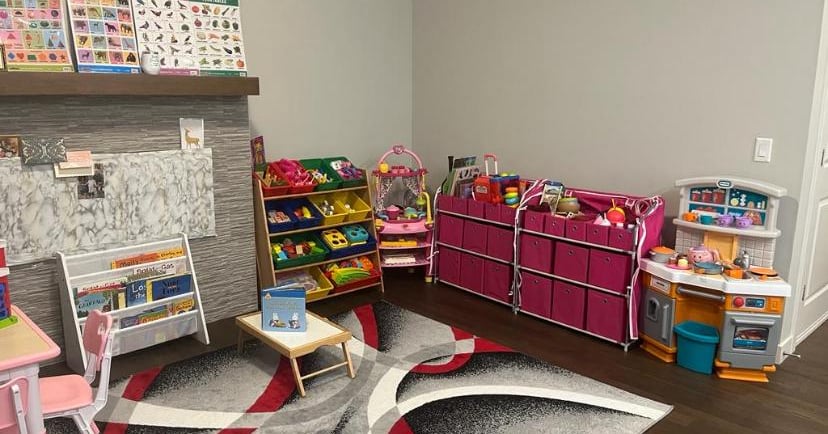Day Home or Daycare: Weighing the Benefits for Your Family
This piece offers a balanced examination of the core benefits each childcare option provides, exploring how a family's unique needs and values should drive the decision. It contrasts the personalized, flexible care typically found in a home setting with the structured learning, socialization, and regulatory security of a center-based facility. The ultimate goal is to guide parents in weighing these distinct advantages to find the optimal fit for their child's early development.
Anupma
2/5/20253 min read


Dayhome vs. Daycare: A Parent's Guide to Choosing the Right Childcare
Choosing between a daycare and a day home is a challenge faced by countless families. Both options offer essential care and early education, yet they differ significantly in environment, approach, and cost. Understanding these differences is crucial for making a well-informed decision that aligns with your family’s unique needs and values.
Defining the Childcare Options
It's key to know the fundamental difference between the two settings.
A dayhome is a home-based setting, often run by an individual or family, that cares for a small group of children, typically up to six children in Alberta. This smaller size creates a personal, family-like environment.
A daycare is a larger, center-based facility. These centers accommodate many children, employ multiple caregivers, adhere to strict regulatory rules, and maintain a set schedule, focusing on standardized safety and health protocols.
Key Differences in Care and Setting
When comparing dayhome versus daycare, parents must consider several crucial factors that impact a child's experience:
Group Size and Environment: Dayhomes thrive on small groups and a cozy, home-like feel, offering a more personalized experience. Daycares operate with larger groups in a dedicated, often bustling, institutional setting.
Approach to Learning: Daycare centers typically follow a structured curriculum with set activities, such as circle time and art projects, aimed at early childhood education. Dayhomes often favor a more flexible, play-based approach in a relaxed atmosphere.
Staff Qualifications: Daycare centers employ staff with formal training, often Early Childhood Education (ECE) certifications, who undergo continuous training. Dayhome providers' experience and formal qualifications can vary widely, making it essential to inquire about their background.
The Benefits of Choosing a Dayhome
Many families opt for dayhomes due to the high level of personal care. The smaller group size ensures each child receives special attention, and the home setting naturally fosters a feeling of safety and comfort. Dayhomes also often provide greater flexibility in scheduling, which is ideal for parents with unpredictable or non-traditional work hours.
Daycare centers offer distinct advantages, particularly in terms of structure and socialization. They provide structured activities and a curriculum that aids learning and growth. The larger environment provides children with extensive opportunities for socializing, helping them learn to share, cooperate, and communicate effectively. Furthermore, the mandatory professional certifications and consistent regulatory compliance offer many parents a stronger sense of security.
The Critical Factor: Cost Comparison
The cost difference between dayhomes and daycares is often a primary consideration. Generally, daycare centers have higher operational expenses due to larger facilities, multiple staff salaries, and resources, which translates to higher fees. While dayhomes may sometimes offer a cost advantage due to lower overhead, costs vary widely across Canada, depending on the province, location, child's age, and the quality of service.
For instance, costs can range significantly, with infant care being the most expensive. Parents should research local rates, such as the estimated monthly costs in Alberta, to accurately budget for either option. It is also vital to look into government subsidies and financial assistance, which can substantially offset the cost of regulated care.
Safety, Regulation, and Flexibility
Safety is non-negotiable. Daycare services are heavily regulated, ensuring compliance with strict safety standards and mandated staff-to-child ratios. While dayhomes also prioritize safety, their regulatory status can vary; therefore, parents prioritizing dayhomes should always opt for one that is regulated and willing to provide evidence of safety measures.
Finally, consider your family’s schedule. While both options offer part-time and full-time arrangements, the intimate nature of a day home may sometimes allow for more tailored flexibility to accommodate irregular work hours or emergency care needs.
Making the Right Decision
Choosing between a daycare and a dayhome is a deeply personal decision that requires balancing several factors: your child's temperament, your work schedule, your budget, and the level of structure you desire. Talk to other parents, visit multiple locations, ask detailed questions about safety and qualifications, and—most importantly—trust your instincts. Both dayhomes and daycares can offer exceptional care, but the "best" choice is the one that provides the optimal environment for your child's happiness and development.
Would you like to search for the current maximum daily rate for child care in your specific area to help with your cost comparison?
